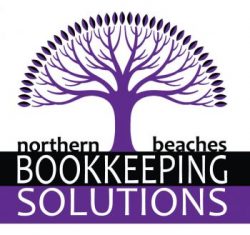The end of the financial year is a crucial time for small businesses to organise financial records, reconcile accounts, and prepare for tax lodgements. Effective year-end bookkeeping ensures that your financial data is accurate, complete, and ready for tax reporting. Here’s a comprehensive checklist to help you close your books and start the new financial year on the right foot.
Why Is Year-End Bookkeeping Important?
Year-end bookkeeping involves reviewing and reconciling financial records to ensure they accurately reflect the business’s financial position. Completing these tasks helps you:
- Prepare for tax lodgements and BAS reporting
- Identify potential tax deductions and credits
- Assess cash flow and financial health
- Minimise the risk of ATO audits and compliance issues
- Establish a financial baseline for the new year
Year-End Bookkeeping Checklist for Small Businesses
Follow these essential steps to complete your year-end bookkeeping tasks:
- 1. Reconcile Bank Accounts: Compare bank statements with accounting records to identify discrepancies and ensure all transactions are accurately recorded.
- 2. Review Accounts Receivable: Follow up on outstanding invoices and record bad debts that are unlikely to be collected.
- 3. Update Accounts Payable: Verify that all bills have been recorded and paid, including supplier invoices and loan repayments.
- 4. Reconcile Payroll Records: Ensure employee wages, superannuation, and tax withholdings are accurately reported and reconciled with ATO records.
- 5. Adjust Inventory Balances: Conduct a stocktake to assess inventory levels, write off damaged or obsolete stock, and adjust records accordingly.
- 6. Review Fixed Assets: Update asset records, calculate depreciation, and record asset disposals or acquisitions.
- 7. Prepare Financial Statements: Generate key financial reports, including profit and loss, balance sheet, and cash flow statement.
- 8. Identify Tax Deductions: Review expenses for potential deductions, including business travel, equipment, and vehicle expenses.
- 9. Backup Financial Data: Ensure all financial records are securely backed up, including digital files and physical receipts.
- 10. Meet Tax Lodgement Deadlines: Prepare BAS, income tax returns, and other required tax forms by the ATO deadlines.
Tax Deduction Opportunities for Small Businesses
The end of the financial year is an excellent time to review expenses and identify potential tax deductions. Common deductible expenses include:
- Business-related travel expenses
- Vehicle and fuel expenses for business use
- Office supplies and equipment
- Professional development and training costs
- Software and subscription fees
- Employee wages and superannuation contributions
Common Year-End Bookkeeping Mistakes to Avoid
To prevent costly errors, avoid these common year-end bookkeeping mistakes:
- Failing to reconcile bank accounts and credit card statements
- Overlooking unpaid invoices or outstanding bills
- Recording personal expenses as business expenses
- Forgetting to adjust inventory or write off bad debts
- Missing tax deadlines and incurring ATO penalties
Preparing for the New Financial Year
Once your books are closed for the year, take the opportunity to set financial goals for the upcoming financial year. Consider reviewing cash flow projections, updating budgets, and identifying areas for cost savings. Implementing robust bookkeeping systems and software can also help streamline financial management and reduce the risk of errors.
Need Help With Year-End Bookkeeping?
Completing year-end bookkeeping tasks can be time-consuming and complex. At Northern Beaches Bookkeeping Solutions, we specialise in preparing financial statements, identifying tax deductions, and ensuring compliance with ATO guidelines. Contact us today for expert support and stress-free year-end bookkeeping services.
